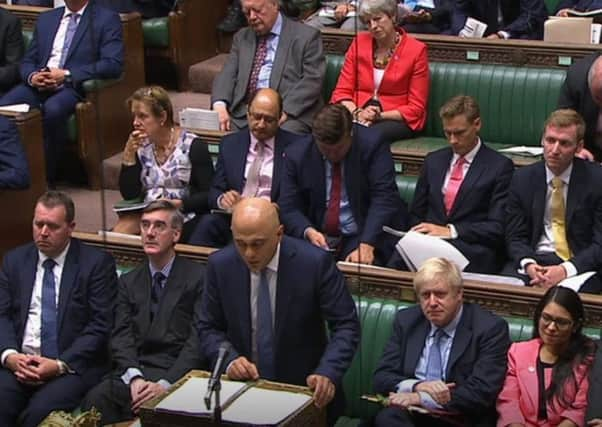Brexit: As austerity in the UK ‘ends’, a recession looms – leader comment


Congratulations! Well done to one and all. Finally, after a long and somewhat tortuous decade, we’ve done it. It’s all over. Time to break out the Champagne or, well, perhaps some sparkling wine from Kent.
“We can now afford to turn the page on austerity,” declared Chancellor Sajid Javid to the Commons as he presented his spending review, saying no Government department would see its budget cut next year with increases “at least in line with inflation”. “That’s what I mean by the end of austerity,” he added. It’s fair to say that not everyone agreed with his definition.
Advertisement
Hide AdAdvertisement
Hide AdPaul Johnson, of the Institute of Fiscal Studies, said Javid’s plan was a “real change in direction on spending” but pointed out, awkwardly for the Chancellor, that “most areas of public service spending were still much below 2010 levels”. Normally the Commons would be packed for such statements by the Chancellor, but by the time he stood up to start speaking there had been an exodus with many MPs deciding it was irrelevant given the current political turmoil over Brexit. Labour dismissed Javid’s speech as “meaningless platitudes” and “grubby electioneering”.
And indeed his plan to increase day-to-day Government spending by £13.8 billion in 2020-21, an inflation-busting rise of 4.1 per cent, may have to be revisited by Javid or whoever is in charge of the public purse depending on how the next few days and weeks pan out.
The UK’s gross domestic product fell by 0.2 per cent in the three months to June and, if there is another fall in the three months to the end of September, the UK will be in recession. The figures are due out just after 31 October.
Uncertainty over Brexit is clearly having an impact, but we will only discover the actual effects of deal or no-deal after the big day itself, assuming it arrives.
Despite the last-ditch attempts to prevent it in the Commons, the UK is still a few weeks away from a no-deal Brexit, an event that some economists fear could be as devastating to the economy as the 2008 crash. So even if one decade-long round of austerity is over, it is possible that we are, right now, entering another – and one that is about to get significantly worse.
Eleven years on, the reputation of bankers has not fully recovered; it is a profession still associated with adjective “greedy”. That is a fate the MPs blithely pushing the UK towards no-deal would do well to consider.